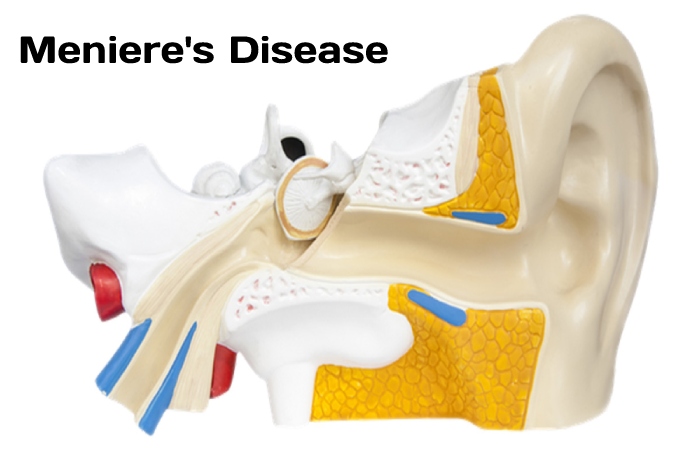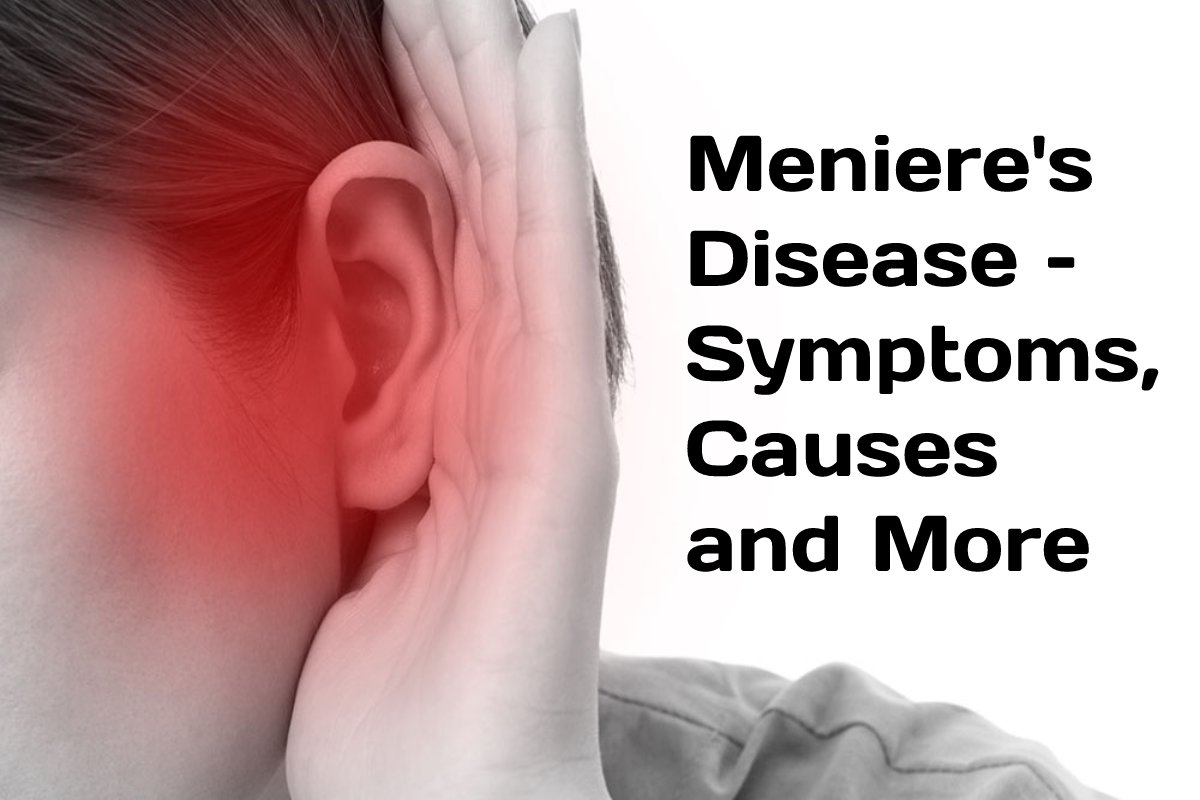Meniere’s disease is an indiscretion in the inner ear that causes plain dizziness, ringing or whistling in the ear, hearing loss, and a feeling that the ear is full or overfilled. Meniere’s disease usually interrupts only one ear.
Vertigo attacks may happen brusquely or after a short period of tinnitus or muffled hearing. Some people have an episode of vertigo only once in a while. Other people may have many attacks over several days. Some people with Meniere’s disease have faintness so dangerous that they lose their poise and fall. These episodes are called “drop seizures”.
Table of Contents
Meniere’s Disease Symptoms
Meniere’s disease usually includes a mixture of these symptoms:
- Dizziness or vertigo is dangerous dizziness that stops the victim from standing or sitting, frequently with nausea and vomiting.
- It was ringing or noise in the ear (tinnitus).
- hearing loss
- A sensation of pressure in the ear.
- The most common symptoms are:
- I mareo vertigo.
- Noise in the ear.
- hearing loss

Causes of Meniere’s Syndrome
The precise causes of the disease are mysterious. However, the vertigo attacks and hearing loss that occur are suspected to be caused by increased fluid pressure in the cochlea of the inner ear, clinically called endolymphatic hydrops.
It supposes to cause hearing loss and ringing in the ears. However, it was not yet clearly understood how the excess in the liquid produces.
Experts also suspect that Meniere’s disease may cause by a virus, which can affect the inner ear. The inner ear locates near the balance organ, which is why inflammation can cause dizziness.
It notes that tinnitus and dizziness can also arise differently. It does not always have to be due to Meniere’s disease. So it recommends consulting an otorhinolaryngologist doctor for the mentioned symptoms.
Among the other possible causes not yet proven, there are:
- allergies
- hereditary factors
- Migraine
- head injuries
Diagnosis of Meniere’s Disease
Meniere’s disease is typically diagnosed and conserved by otolaryngologists, a doctor specifying ear, nose, and throat illnesses. However, to make an exact diagnosis, no conclusive test or single symptom can demonstrate that the disease happens. The analysis is based on the person’s medical history and the presence of other issues, such as:
- Two or more episodes of vertigo lasting 20 minutes.
- Ringing, roaring, or hissing in the ears.
- Temporary hearing loss.
- The sensation that the ear is full.
Meniere’s Disease Treatments
There is still no conclusive treatment for this disease, so treatment syndicates medical and behavioral therapy. Standard measures comprise medications, diet control, salt intake reduction, eating habits improvement, and control of anxiety states. These treatments positively affect the control and relief of symptoms in 85% of patients.
Hearing Aids for Meniere’s Syndrome
Hearing loss caused by Meniere’s disease can lead to a lower quality of life. Those affected often suffer in a social setting due to poor hearing. Hearing aids can counter these problems.
However, the provision of hearing aids is problematic due to the course of the disease. Due to fluctuating hearing ability, regular adjustments needs. In addition, patients suffer from severe noise sensitivity in the diseased ear. However, we recommend that you wear a hearing aid and protect your hearing in noisy situations by wearing custom hearing protection.
Conclusion
The treatment of this disease can be pharmacological, in addition to controlling the diet with a bit of salt and improving other eating habits, as well as controlling anxiety states. With medical treatment, 85% of patients own acceptably well.

